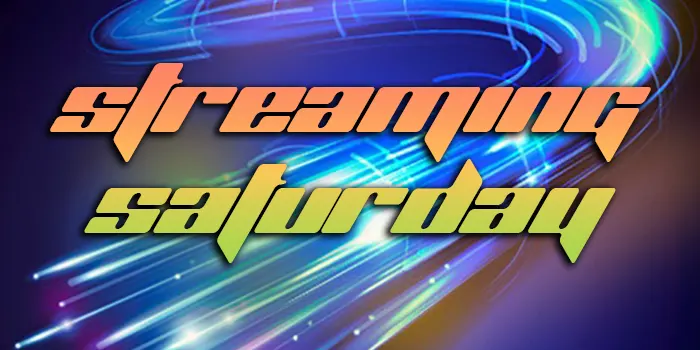Stuart’s taking over again this week, and Buckler’s sure going to suffer when he returns.
This week, The Suicide Squad premieres in theaters and on HBO Max. Is it any good? I don’t know. Like you, I haven’t seen it yet. I know the basics, though — the guy who did Guardians of the Galaxy was brought in to create a film about another set of misfits who take on action-packed adventures. It’s a reaction to the largely panned Suicide Squad movie from 2016. That film, to be honest, wasn’t too bad. It just suffered from problems with pacing and an overall feeling that you couldn’t keep the characters straight. I probably liked it more than most people.
A sequel, but not a sequel
When you listen to the hype machine, they will explain that The Suicide Squad isn’t a sequel to Suicide Squad. It’s sort of, a slide sideways. Some of the characters carry over, but most don’t. The tone is different, or so they say. It’s more like a reimagining, the same way that Batman Begins isn’t a sequel to Batman Forever. Except that was a case of a straight reboot, and this isn’t a reboot either.
The folks promoting it want you to compare these two films to Alien and Aliens. Alien, which premiered in 1979, was a straight horror film, a classic monster tale set in space. Aliens, premiering 7 years later in 1986, was an action film which defined the “sci-fi shoot-em-up” franchise model in ways that The Suicide Squad and Guardians of the Galaxy still use.
The two films shared only one character, unless you count the titular alien. They were connected by the thinnest thread possible. The result was two films that couldn’t have been more different but were both classics in their genres. This is basically how they want you to think of Suicide Squad and The Suicide Squad…
…except the first one wasn’t a classic. I liked it but it wasn’t a classic. I’d say that the two films, if anything, are more like two James Bond films. Similar premises, a few characters that hold over from film to film, but treated differently every time.
I for one welcome our new sequel overlords
For decades, movie releases have been driven by “franchises.” Find a movie that people want to see and keep pushing out sequels until the public gets bored. In some cases, like Star Wars and the Marvel Cinematic Universe, it’s worked spectacularly. In others, like the surprising number of Sharknado films, it hasn’t.
I like the idea that we’ve moved into a new phase where sequel films have more room to grow and change. Here’s an example. I found myself watching all nine available Fast and the Furious films this summer. Now, no one is going to call this franchise high art. But like the Bond films, they’ve evolved slowly, building a mythology that is there for you to enjoy if you want. It’s also extremely easy to come in at film number seven or eight and just enjoy. Each of the films could stand alone, but is better if you’ve seen the others. That’s actually pretty hard to do. If The Suicide Squad succeeds at being enjoyable as a standalone while being more enjoyable as a sequel, I’ll be incredibly impressed.
The Suicide Squad also gives us a hint of what DC wants to do with its films from here on out. The DC Extended Universe, with its dark tone and reliance on comicbook trivialities, never did succeed as it should. But, along the way there were characters that were intriguing. The idea that we can take these characters and move them forward without getting mired in the muck of a shared mythology is honestly kind of refreshing. I’m still not sure we need another Batman film, but it’s nice that the next one will be able to start fresh without being compared to the last three times the franchise was rebooted.
But the hype…
Until I see The Suicide Squad, though, I’m not about to compare it favorably to Aliens. I’m also not going to compare it to other semi-sequels which have been so well received over the years. I think of the 1961 film The Hustler. In it, Paul Newman was a young pool shark. 23 years later, Mr. Newman reprised the same role in The Color of Money, but by this time he was the expert and Tom Cruise played the young buck. This not-quite-a-sequel worked so well that a whole generation never got around to seeing the first film. Maybe that’s too well.
I’m a little worried that the Suicide Squad films will be more like Wonder Woman and Wonder Woman 1984. While these two films shared main characters and a director, they differed in tone, visual style, and frankly in quality. I’m not alone in thinking the first one was better.
Certainly, these two films will not hold up to the gold standard for not-quite sequels (at least in my mind.) Star Trek: The Motion Picture premiered in 1979 to poor reviews and middling box office. Surprisingly, a second film was greenlit and 1982’s Star Trek II: The Wrath of Khan was a masterpiece in its day. (Yeah I know, Buckler, shut up.) If you think about it, the films shared casts but differed in tone, style, and direction. The second film made no reference to the first. Was it even a sequel? At the time we said it was, because there was no other word for it.
My hope for the future
What I like most of all is that filmmakers are trying new things. I feel like for decades we’ve seen mindless sequels. I’m sorry, The Suicide Squad is a sequel. But will it be a good one? Let’s find out together. The film is available now in theaters and on HBO Max.




